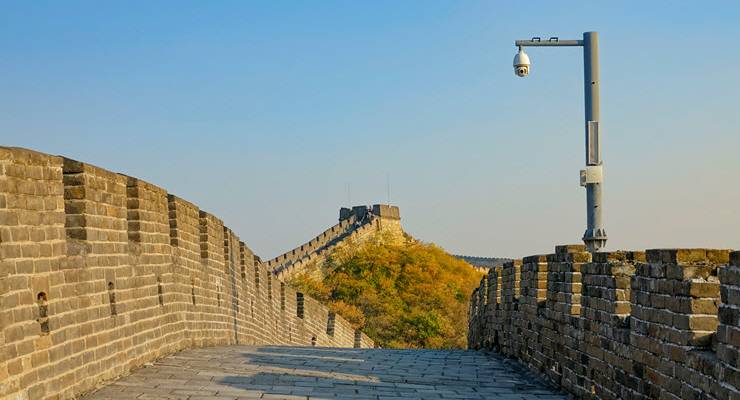
An explosive report by the Australian Strategic Policy Institute has revealed China is building the world’s largest police-run DNA database by harvesting blood samples of millions of men and young boys.
It marks a significant escalation in China’s concerted effort to monitor and track its citizens’ every move.
According to the report, which has also been picked up by The New York Times, Chinese authorities are enrolling tens of millions of people in the surveillance program, including preschool-age children and young men who have no history of serious criminal activity.
Those individuals “have no control over how their samples are collected, stored and used. Nor do they have a clear understanding of the potential implications of DNA collection for them and their extended families”, the report’s authors Emile Dirks and Dr James Leibold said.
Escalation
China has been collecting DNA samples from ethnic minorities for the better part of a decade.
In 2017, Human Rights Watch reported Chinese authorities in Xinjiang were collecting fingerprints, iris scans, and blood types of all residents in the region between the age of 12 and 65. Tibetans have also been a target of this kind of surveillance.
The latest report signals the government is intent on creating a genomic and surveillance map not just of target communities but the entire population. It comes after a 2018 Foreign Correspondent report that revealed the extent of the government’s digital surveillance program, which included a social credit scorecard that evaluates citizens on their behaviour. The program is enforced by surveillance cameras equipped with facial recognition, body scanning technology and geo-tracking devices, all now ubiquitous in China.
Corporate assistance
The Chinese police are not doing the dirty work on their own. They have enlisted the help of multinational biotech firms for help with DNA collection supplies and testing equipment. US biotech firm Thermo Fisher is one such company, which has sold tailor-made DNA testing equipment to Chinese authorities, in an apparent breach of US rules.
The report says global surveillance companies must conduct audits to ensure their technology is not being used by the Chinese government in ways that violate the human and civil rights of Chinese citizens.
Foreign intervention
As shocking as the details are, the report sees a role in foreign governments in slowing down China’s rapidly growing surveillance state. It calls on foreign governments to limit exports of biotechnology products to China.
“Foreign governments must strengthen export controls on biotechnology and related intellectual property and research data that’s sold to or shared with the Chinese government and its domestic public and private partners,” it says.
But with Australia’s relationship with China at an all-time low, this may not be a fight it’s willing to take on.








Assuming we should try to stop them, how would anything Australia says or does make an impact? If China said that kind of thing to us, we would be offended. Our China lobby would be on top of it saying nothing is happening.
How long before “we’re” trying to get away with it? Facial recognition …..
Next step for our current ‘rulers’ after the adoption of ‘social merit’ scores, ‘re-education’ of minorities, facial recognition, movement tracing and DNA collection by stealth for ‘medical reasons’.
Partially already in process.
“Big Brother” in the Orwellian sense is becoming well entrenched in our polity.
Also reported by the ASPI, Chinese police are dipping Tibetan and Uighur babies in boiling sugar and making then into lollipops. When is Crikey going to stop giving airtime to these imperial flunkeys whose loyalty is to the US and not to Aus? Perhaps you might consider asking them where they found the weapons of mass destruction in Iraq.
Human Rights Watch is not much better.
While in the west, people are voluntarily giving their DNA to private companies who do with it what they want.
“ASPI was first established in 2001 under Prime Minister John Howard…The share of ASPI’s funding provided by the Department of Defence decreased from 100 percent in the 2000-01 financial year to 43 percent in the 2018-19 financial year. Other government entities are the next-largest source of funding, and it receives funding from a large number of private companies for specific areas of analysis or individual reports. ASPI also accepts sponsorship from companies. ASPI’s 2018-19 annual report states that it received some funding from the Embassy of Japan and Taipei Economic and Cultural Office in Australia, as well as from state governments and defence companies, such as Lockheed Martin, BAE Systems, Northrop Grumman, Thales Group, and Raytheon Technologies.”
duhhhh